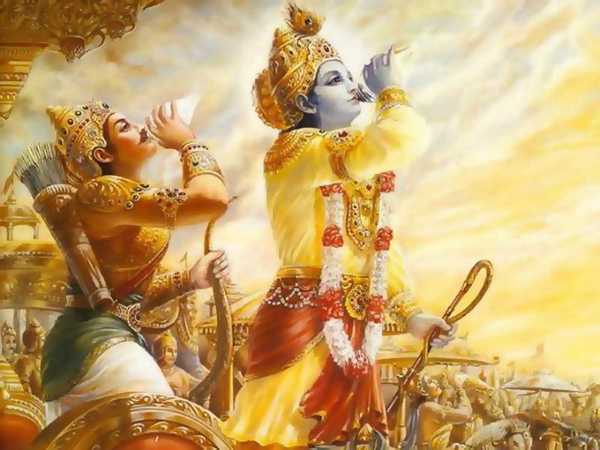Chapter 209

“Markandeya continued, ‘Hear, O king Yudhishthira what the virtuousfowler, thus interrogated by that Brahmana, said to him in reply. Thefowler said, ‘Men’s minds are at first bent on the acquisition ofknowledge. That acquired, O good Brahmana, they indulge in their passionsand desires, and for that end, they labour and set about tasks of greatmagnitude and indulge in much-desired pleasures of beauty, flavour, &c.Then follows fondness, then envy, then avarice and then extinction of allspiritual light. And when men are thus influenced by avarice, andovercome by envy and fondness, their intellect ceases to be guided byrighteousness and they practise the very mockery of virtue. Practisingvirtue with hypocrisy, they are content to acquire wealth bydishonourable means with the wealth thus acquired the intelligentprinciple in them becomes enamoured of those evil ways, and they arefilled with a desire to commit sins. And when, O good Brahmana, theirfriends and men of wisdom remonstrate with them, they are ready withspecious answers, which are neither sound nor convincing. From theirbeing addicted to evil ways, they are guilty of a threefold sin. Theycommit sin in thought, in word, as also in action. They being addicted towicked ways, all their good qualities die out, and these men of wickeddeeds cultivate the friendship of men of similar character, andconsequently they suffer misery in this world as well as in the next. Thesinful man is of this nature, and now hear of the man of virtue. Hediscerns these evils by means of his spiritual insight, and is able todiscriminate between happiness and misery, and is full of respectfulattention to men of virtue, and from practising virtues, his mind becomesinclined to righteousness.’ The Brahmana replied, ‘Thou hast given a trueexposition of religion which none else is able to expound. Thy spiritualpower is great, and thou dost appear to me to be like a great Rishi.’ Thefowler replied, ‘The great Brahmanas are worshipped with the same honoursas our ancestors and they are always propitiated with offerings of foodbefore others. Wise men in this world do what is pleasing to them, withall their heart. And I shall, O good Brahmana, describe to thee what ispleasing to them, after having bowed down to Brahmanas as a class. Dothou learn from me the Brahmanic philosophy. This whole universeunconquerable everywhere and abounding in great elements, is Brahma, andthere is nothing higher than this. The earth, air, water, fire and skyare the great elements. And form, odour, sound, touch and taste are theircharacteristic properties. These latter too have their properties whichare also correlated to each other. And of the three qualities, which aregradually characterised by each, in order of priority is consciousnesswhich is called the mind. The seventh is intelligence and after thatcomes egoism; and then the five senses, then the soul, then the moralqualities called sattwa, rajas and tamas. These seventeen are said to bethe unknown or incomprehensible qualities. I have described all this tothee, what else dost thou wish to know?'”




